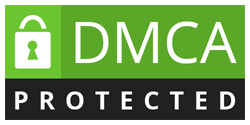Electronic Communications
A New York tea merchant contracts to buy a large quantity of English Tea from a London seller. The buyer asks its New York bank to open a confirmed letter of credit in favor of the seller. The Merchant’s Bank of New York uses the dedicated SWIFT network to contact the London Commercial Bank and asks it to add its confirmation and advise the London seller that a confirmed letter of credit has been issued in favor of the seller by the New York buyer. The electronic message calls for “Payment against documents for English Green Tea in bulk. Details to follow by mail.”
As the London seller insists on a hard copy of the letter of credit, the New York bank send the confirming bank the following message, “To save time, please print out our electronic letter of credit and forward to the seller.” However, as the London bank is printing out the electronic letter, a glitch occurs in the computer software program that converts the message in the SWIFT electronic format to a word processing format. The glitch results in the deletion of the word “Green” so the hard copy of the letter of credit printed out by the London bank refers to “Payment against documents for English Tea in bulk.” As this problem has never occurrd before, the London bank simply forwards the documents to the London seller. The seller subsequently submits documents for English tea to the London bank and receives payment under the letter of credit. The London bank forwards the documents to the New York bank, which notifies the London bank, “We cannot reimburse you as documents refer to “English Tea” instead of “English Green Tea” as per our SWIFT instructions on the letter of credit. We hold these documents at your disposal.”
The London bank discovers the computer software problem but argues that the operative document is not the electronic message but as per the instructions from the New York bank the printed-out hard copy, which requires documents relating to “English Tea.” The operative document called for documents relating to English Tea and such documents were submitted that strictly complied with the terms of the credit as fixed by the hard copy. The London bank argues that its payment was therefore proper and that the New York bank must now reimburse or the London bank will sue for wrongful dishonor. The New York bank argues tha the operative letter of credit is contained in the SWIFT electronic messge that required documents for English Green Tea and that as the documents for English Tea are nonconforming the New York bank has no obligation to reimburse the London bank. Who is right? See UCP 600 Article 11 and Article 35.




